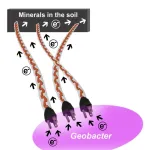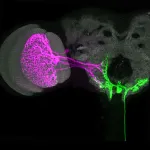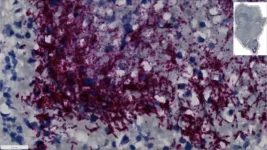(Press-News.org) Immunological memory — the ability to respond to a previously encountered antigen, or foreign substance, with greater speed and intensity on re-exposure is a hallmark of adaptive immunity. Innate immune cells also develop metabolic and epigenetic memories that boost their responses, but it was previously unknown if non-immune cells like astrocytes, which interact with immune cells and contribute to inflammation in the central nervous system (CNS), acquire aspects of immune memory of encountering immune stimuli.
Investigators at Brigham and Women’s Hospital, a founding member of the Mass General Brigham healthcare system, have demonstrated for the first time that astrocytes, non-immune cells, can acquire a memory of their previous interactions with the immune system, with important implications for our understanding of tissue inflammation. The study found that astrocytes can remember previous interactions with immune cells, acquire developing faster and stronger pro-inflammatory responses upon subsequent re-challenge with immune stimuli. These findings resemble classic descriptions of immune memory in immune cells, hence the investigators have termed it astrocyte immune memory, to differentiate it from described roles of astrocytes in cognitive memory. Considering the longevity of astrocytes, and their multiple contributions to CNS pathology, the authors suggest that astrocyte immune memory might be a possible mechanism behind chronic neurologic disorders.
In a series of in vivo and in vitro studies, the investigators established that astrocyte immune memory is driven by an epigenetic program driven by p300 and ATP-citrate lyase (ACLY) — enzymes that help increase gene activity. The team found that astrocytes expressing p300 and ACLY were upregulated in mouse models of multiple sclerosis (MS), and that astrocyte-specific inactivation of these genes suppressed CNS inflammation and disease progression.
The researchers also observed astrocyte memory in vitro in human cells and detected elevated levels of ACLY+p300+astrocytes in chronic MS human patient samples, indicating a potential role of astrocyte memory in disease pathology.
“Our work reveals that astrocytes, non-immune cells, can develop aspects of immune memory,” said corresponding author Francisco Quintana, PhD, of the Department of Neurology. “We also show that epigenetic astrocyte memory promotes CNS pathology in autoimmune inflammation. These findings highlight important mechanisms relevant to neurologic disorders like MS and could guide the development of novel therapeutic interventions that target ACLY+p300+ memory astrocytes to reduce inflammation.”
in Nature.
END
Study finds non-immune brain cells can acquire immune memory, may drive CNS pathologies like multiple sclerosis
2024-03-20
ELSE PRESS RELEASES FROM THIS DATE:
Canada should ban all unhealthy food marketing children may be exposed to
2024-03-20
Quebec City, March 20, 2024–Canada should ban marketing of unhealthy foods wherever children may be exposed, whether on TV, social media or billboards. This is one of the main conclusions of a Canada-wide study involving more than fifty food and nutrition experts made public today by a team from Université Laval's Faculty of Agriculture and Food Sciences.
The study, conducted as part of a research program funded by the Canadian Institutes of Health Research, also recommends better funding ...
The 7th World Conference on Targeting Phage Therapy, taking place in Malta in 2024, will showcase current developments in phage therapy and offer strategic insights into its future directions
2024-03-20
The 7th World Conference on Targeting Phage Therapy 2024 is set to take place on June 20-21 at the Corinthia Palace Malta, introducing the latest advancements within the field of phage research and therapy.
Robert T. Schooley, M.D., Professor of Medicine at the University of California, San Diego, and Co-Director of the Center for Innovative Phage Applications and Therapeutics, will lead the discourse, presenting insights and strategies essential to Phage Therapy in his talk titled "Phage Therapeutics 2024: Essential Translational Research Components for Clinical Trials."
Agenda at a Glance
Day One: will focus on Phages, Hosts & Microbiome, exploring ...
Companies reluctant to pay extra to confirm suppliers’ sustainability claims
2024-03-20
Many companies proclaiming ethical credentials resist paying a premium to test their suppliers’ sustainability claims, new research suggests.
A team from Bayes Business School (formerly Cass), City, University of London, studied responses from 234 managers with procurement decision-making powers.
While buyers’ purchasing decisions are not solely price-driven, the team found, they are often happy to accept suppliers’ reassurances about sustainability rather than pay a premium for third party verification. Despite accepting ...
Deep Earth electrical grid mystery solved
2024-03-20
To “breathe” in an environment without oxygen, bacteria in the ground beneath our feet depend upon a single family of proteins to transfer excess electrons, produced during the “burning” of nutrients, to electric hairs called nanowires projecting from their surface, found by researchers at Yale University and NOVA School of Science and Technology, NOVA University Lisbon (NOVA-FCT).
This family of proteins in essence acts as plugs that power these nanowires to create a natural electrical ...
Metformin during pregnancy affects the brain development in offspring mice
2024-03-20
With the rise in gestational diabetes and metabolic disorders during pregnancy, metformin is also being prescribed more frequently. Although it is known that the oral antidiabetic agent can cross the placental barrier, the impacts on the brain development of the child are largely unknown. An interdisciplinary research team from the German Institute of Human Nutrition Potsdam-Rehbrücke (DIfE) have now been able to demonstrate in a mouse model that although metformin has positive effects in pregnant animals, it does not in the offspring. The results were published in the specialist journal ‘Molecular ...
Exposure to tobacco before birth significantly increased risk of Type 2 diabetes in adults
2024-03-20
Research Highlights:
Exposure to tobacco before birth and beginning smoking during childhood or adolescence were significantly associated with the development of Type 2 diabetes in adulthood, according to a study of nearly half a million adults in the UK Biobank.
Among those exposed to tobacco before birth or who began smoking during childhood or adolescence, participants who had a genetic predisposition to develop Type 2 diabetes and started smoking in childhood or adolescence had the highest risk of developing Type 2 diabetes.
Embargoed until 10:30 a.m. ...
In flies, a single brain cell can drive multiple movements of the body
2024-03-20
NEW YORK, NY — Motor neurons are the cells the brain uses to command muscles to act. Scientists typically thought of them as simple connections, much like the cables that link computers with their accessories. Now, in fly studies, researchers at Columbia's Zuckerman Institute have discovered that single motor neurons can each direct an insect’s body to move in far more complex ways than previously thought.
The findings were published in Nature on March 20.
"This is one of the first times scientists have analyzed in 3D what single motor neurons do ...
Toba supereruption unveils new insights into early human migration
2024-03-20
Modern humans dispersed from Africa multiple times, but the event that led to global expansion occurred less than 100,000 years ago. Some researchers hypothesize that dispersals were restricted to “green corridors” formed during humid intervals when food was abundant and human populations expanded in lockstep with their environments. But a new study in Nature, including ASU researchers Curtis Marean, Christopher Campisano, and Jayde Hirniak, suggests that humans also may have dispersed during arid intervals along “blue highways” created by seasonal rivers. Researchers also found evidence of cooking and stone tools that represent the oldest evidence of archery.
Working ...
Bacteria subtype linked to growth in up to 50% of human colorectal cancers, Fred Hutch researchers report
2024-03-20
Researchers at Fred Hutchinson Cancer Center have found that a specific subtype of a microbe commonly found in the mouth is able to travel to the gut and grow within colorectal cancer tumors. This microbe is also a culprit for driving cancer progression and leads to poorer patient outcomes after cancer treatment.
The findings, published March 20 in the journal Nature, could help improve therapeutic approaches and early screening methods for colorectal cancer, which is the second most common cause of cancer deaths in adults in the U.S. according to the American Cancer Society.
Examining colorectal cancer tumors removed from ...
Reducing the side effects of breast and ovarian cancer treatment
2024-03-20
Some anti-cancer treatments not only target tumour cells but also healthy cells. If their effects on the latter are too strong, their use can become limiting. A team from the University of Geneva (UNIGE), in collaboration with Basel-based FoRx Therapeutics, has identified the mechanism of action of PARP inhibitors, used in particular for breast and ovarian cancer in patients carrying the BRCA gene mutation. These inhibitors block two specific activities of the PARP proteins. By blocking one of them, the toxic effect on cancer cells is maintained, while healthy cells are preserved. This work, published in the journal Nature, will help improve the efficacy of these treatments.
Despite ...




